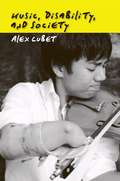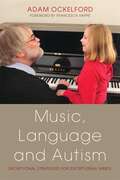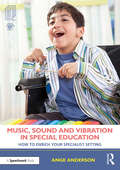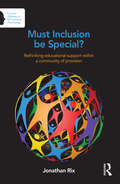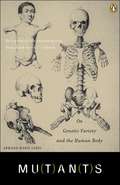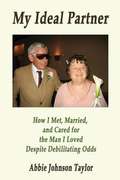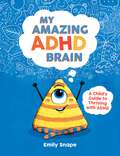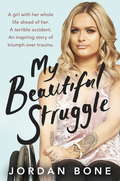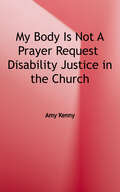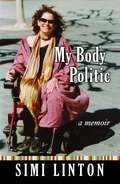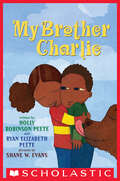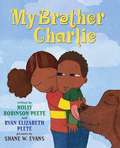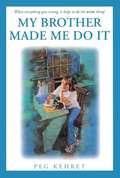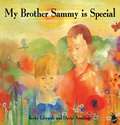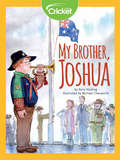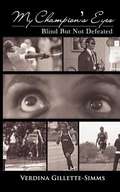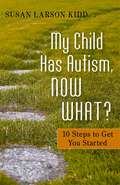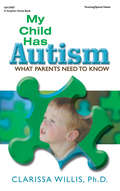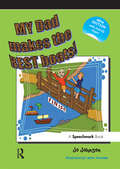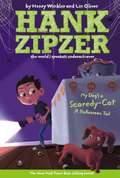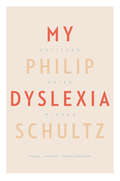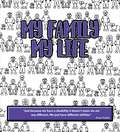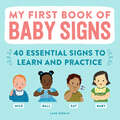- Table View
- List View
Music, Disability, and Society
by Alex LubetMusical talent in Western culture is regarded as an extraordinary combination of technical proficiency and interpretative sensitivity. In Music, Disability, and Society, Alex Lubet challenges the rigid view of technical skill and writes about music in relation to disability studies. He addresses the ways in which people with disabilities are denied the opportunity to participate in music. Elaborating on the theory of "social confluence," Lubet provides a variety of encounters between disability and music to observe radical transformations of identity. Considering hand-injured and one-handed pianists; the impairments of jazz luminaries Django Reinhardt, Horace Parlan, and "Little" Jimmy Scott; and the "Blind Orchestra" of Cairo, he shows how the cultural world of classical music contrasts sharply with that of jazz and how musicality itself is regarded a disability in some religious contexts. Music, Disability, and Society also explains how language difference can become a disability for Asian students in American schools of music, limiting their education and careers. Lubet offers pungent criticism of the biases in music education and the music profession, going so far as to say that culture disables some performers by adhering to rigid notions of what a musician must look like, how music must be played, who may play it, and what (if any) is the legitimate place of music in society. In Music, Disability, and Society, he convincingly argues that where music is concerned, disability is a matter of culture, not physical impairment.
Music, Sound and Vibration in Special Education: How to Enrich Your Specialist Setting
by Ange AndersonThis book provides practical guidance on how to successfully incorporate music, sound and vibration into your special school, exploring the rich benefits that musical opportunities offer for children with physical, mental health and learning disabilities. Music has been shown to improve mood, lift depression, improve blood flow and even ease pain, whilst musical interventions can encourage communication and enable relaxation. This book explores the physical, cognitive and mental health benefits of music use in special schools, introducing therapies and innovations that can be adapted for use in your own specialist setting. Key features include: • Chapters exploring a range of music therapies and technologies that allow all students to access the benefits of music, sound and vibration, from one-to-one therapeutic music sessions to vibro-acoustic therapy and sing and sign • Case studies and anecdotes showcasing the innovative ways that special schools are using music, and providing concrete examples of how to deliver, record and access music provision • Photocopiable policies, risk assessments and links to useful resources Written by an author with a wealth of experience in special education, this book is essential reading for all those working in specialist settings or with children with SEND.
Must Inclusion be Special?: Rethinking educational support within a community of provision (Current Debates in Educational Psychology)
by Jonathan RixMust Inclusion be Special? examines the discord between special and inclusive education and why this discord can only be resolved when wider inequalities within mainstream education are confronted. It calls for a shift in our approach to provision, from seeing it as a conglomeration of individualised needs to identifying it as a conglomeration of collective needs. The author examines the political, medical and cultural tendency of current times to focus upon the individual and contrasts this with the necessity to focus on context. This book distinguishes the theoretical perspectives that are often associated with special or inclusive education and the broad range of interests which depend upon their ongoing development. This examination leads to a problematisation of mainstream education provision, our understanding of why social inequities emerge and how additional support can overcome these inequities. Further chapters explore the underlying challenges which emerge from our use and understanding of the notions of special and inclusive, outlining an alternative approach based upon a community of provision. This approach recognises the interconnectedness of services and the significance of context, and it encapsulates the aspiration of much international legislation for participation and inclusion for all. But it also assumes that we tend towards diffuse practices, services, policies, settings and roles, spread across provision which is variously inclusive and exclusionary. In seeking to create equitable participation for all, support needs to shift its focus from the individual to this diffuse network of contexts. Must Inclusion be Special? emerges from the research base which problematises inclusion and special education, drawing upon examples from many countries. It also refers to the author’s research into pedagogy, language and policy, and his experiences as a teacher and the parent of a child identified with special educational needs.
Mutants: On Genetic Variety and the Human Body
by Armand Marie LeroiStepping effortlessly from myth to cutting-edge science, Mutants gives a brilliant narrative account of our genetic code and the captivating people whose bodies have revealed it--a French convent girl who found herself changing sex at puberty; children who, echoing Homer's Cyclops, are born with a single eye in the middle of their foreheads; a village of long-lived Croatian dwarves; one family, whose bodies were entirely covered with hair, was kept at the Burmese royal court for four generations and gave Darwin one of his keenest insights into heredity. This elegant, humane, and engaging book "captures what we know of the development of what makes us human" (Nature).
My Ideal Partner: How I Met, Married, and Cared for The Man I Loved Despite Debilitating Odds
by Abbie Johnson TaylorIn September of 2005, Abbie Johnson married Bill Taylor. She was in her mid-forties, and he was nineteen years older. Three months later, Bill suffered the first of two strokes that paralyzed his left side and confined him to a wheelchair. Abbie Johnson Taylor, once a registered music therapist, uses prose and poetry to tell the story of how she met and married her husband, then cared for him for six years despite her visual impairment. At first, there was a glimmer of hope that Bill would walk again, but when therapists gave up on him seven months after his second stroke, Taylor resigned herself to being a permanent family caregiver. She discusses learning to dress him and transfer him from one place to another, sitting up with him at night when he couldn't urinate or move his bowels, and dealing with doctors and bureaucrats to obtain necessary equipment and services. There were happy times, like when she played the piano or guitar and sang his favorite songs, or when they went out to eat or to a concert. She also explains how she purchased a wheelchair accessible van and found people to drive it, so they wouldn't always depend on the local paratransit service's limited hours. In the end, she describes the painful decision she and Bill made to move him to a nursing home when he became too weak for her to care for him in September of 2012. He seemed to give up on life and passed away a month later. Abbie Johnson Taylor lives in Sheridan, Wyoming and is the author of three previously published books.
My Amazing ADHD Brain: A Child's Guide to Thriving with ADHD
by Emily SnapePip is a confident little monster who has ADHD. In this book, they share what that means for them and how it has some really brilliant benefits.My Amazing ADHD Brain is packed with reassuring words, practical advice and skill-building activity ideas, and has a fun, relatable voice.
My Beautiful Struggle
by Jordan BoneA girl with her whole life ahead of her. A terrible accident. An inspiring story of triumph over trauma. Aged 15, Jordan was a happy-go-lucky girl; having fun with friends and loving life. In one fateful moment, everything changed. A car accident left her paralysed from the chest down and shocked her into deep depression. She was on the brink of giving up. But gradually Jordan realised there is hope beyond utter devastation, and life beyond disability.Painstakingly re-learning how to apply her beloved make-up, Jordan began to rebuild her sense of self and empowerment. Her body may have been broken but her spirit was not. She is now a successful beauty blogger and her journey of positivity inspires millions around the world.MY BEAUTIFUL STRUGGLE is the incredible true story of how one young woman overcame immense challenges, of inner strength that lies beneath outer beauty, of how to believe in yourself and find the light when it feels like all hope is gone.
My Beautiful Struggle
by Jordan Bone<P>Aged 15, Jordan Bone got into a car with friends. She would never walk again. Paralysed from the chest down, her life was changed forever. Becoming depressed and feeling like life wasn't worth living, these weren't the teenage years that Jordan had envisaged. <P>However, slowly but surely, she began to get herself out of the darkness. With a little help from the internet, Jordan started to embrace positive thinking and embarked on a personal journey to get her confidence - and her life - back. Eleven years on from the accident, Jordan creates her own beauty tutorials on YouTube and has a range of successful brand partnerships. She has reclaimed her life and her independence and now wants to share her inspirational story with others and is telling it through different aspects of beauty. This isn't a book about looking good on the surface, this is a story of inner strength, believing in yourself and finding motivation when you feel like all hope is gone.
My Body Is Not a Prayer Request: Disability Justice in the Church
by Amy KennyWith humorous prose and wry wit, Kenny makes a convincing case for all Christians to do more to meet access needs and embrace disabilities as part of God's kingdom. . . . Inclusivity-minded Christians will cheer the lessons laid out here."--Publishers Weekly. Much of the church has forgotten that we worship a disabled God whose wounds survived resurrection, says Amy Kenny. It is time for the church to start treating disabled people as full members of the body of Christ who have much more to offer than a miraculous cure narrative and to learn from their embodied experiences. Written by a disabled Christian, this book shows that the church is missing out on the prophetic witness and blessing of disability. Kenny reflects on her experiences inside the church to expose unintentional ableism and cast a new vision for Christian communities to engage disability justice. She shows that until we cultivate church spaces where people with disabilities can fully belong, flourish, and lead, we are not valuing the diverse members of the body of Christ. Offering a unique blend of personal storytelling, fresh and compelling writing, biblical exegesis, and practical application, this book invites readers to participate in disability justice and create a more inclusive community in church and parachurch spaces. Engaging content such as reflection questions and top-ten lists are included.
My Body Politic: A Memoir
by Simi Linton"I read My Body Politic with admiration, sometimes for the pain that all but wept on the page, again for sheer exuberant friendships, for self-discovery, political imagination, and pluck. . . . Wonderful! In a dark time, a gift of hope. -Daniel Berrigan, S. J. "The struggles, joys, and political awakening of a firecracker of a narrator. . . . Linton has succeeded in creating a life both rich and enviable. With her crackle, irreverence, and intelligence, it's clear that the author would never be willing to settle. . . . Wholly enjoyable. " -Kirkus Reviews "Linton is a passionate guide to a world many outsiders, and even insiders, find difficult to navigate. . . . In this volume, she recounts her personal odyssey, from flower child . . . to disability-rights/human rights activist. " -Publishers Weekly "Witty, original, and political without being politically correct, introducing us to a cast of funny, brave, remarkable characters (including the professional dancer with one leg) who have changed the way that 'walkies' understand disability. By the time Linton tells you about the first time she was dancing in her wheelchair, you will feel like dancing, too. " ---Carol Tavris, author of Anger: The Misunderstood Emotion "This astonishing book has perfect pitch. It is filled with wit and passion. Linton shows us how she learned to 'absorb disability,' and to pilot a new and interesting body. With verve and wonder, she discovers her body's pleasures, hungers, surprises, hurts, strengths, limits, and uses. " -Rosemarie Garland-Thomson, author of Extraordinary Bodies: Figuring Physical Disability in American Culture and Literature "An extraordinarily readable account of life in the fast lane. . . a brilliant autobiography and a great read. " -Sander L. Gilman, author of Fat Boys: A Slim Book While hitchhiking from Boston to Washington, D. C. , in 1971 to protest the war in Vietnam, Simi Linton was involved in a car accident that paralyzed her legs and took the lives of her young husband and her best friend. Her memoir begins with her struggle to regain physical and emotional strength and to resume her life in the world. Then Linton takes us on the road she traveled (with stops in Berkeley, Paris, Havana) and back to her home in Manhattan, as she learns what it means to be a disabled person in America. Linton eventually completed a Ph. D. , remarried, and began teaching at Hunter College. Along the way she became deeply committed to the disability rights movement and to the people she joined forces with. The stories in My Body Politic are populated with richly drawn portraits of Linton's disabled comrades, people of conviction and lusty exuberance who dance, play-and organize--with passion and commitment. My Body Politic begins in the midst of the turmoil over Vietnam and concludes with a meditation on the U. S. involvement in the current war in Iraq and the war's wounded veterans. While a memoir of the author's gradual political awakening, My Body Politic is filled with adventure, celebration, and rock and roll-Salvador Dali, James Brown, and Jimi Hendrix all make cameo appearances. Linton weaves a tale that shows disability to be an ordinary part of the twists and turns of life and, simultaneously, a unique vantage point on the world.
My Brother Charlie
by Holly Robinson Peete Ryan Elizabeth PeeteFrom bestselling author and actress Holly Robinson Peete--a heartwarming story about a boy who happens to be autistic, based on Holly's son, who has autism."Charlie has autism. His brain works in a special way. It's harder for him to make friends. Or show his true feelings. Or stay safe." But as his big sister tells us, for everything that Charlie can't do well, there are plenty more things that he's good at. He knows the names of all the American presidents. He knows stuff about airplanes. And he can even play the piano better than anyone he knows.Actress and national autism spokesperson Holly Robinson Peete collaborates with her daughter on this book based on Holly's 10-year-old son, who has autism.
My Brother Charlie: A Sister's Story of Autism
by Holly Robinson Peete Ryan Elizabeth Peete<P>Callie is very proud of her brother Charlie. He's good at so many things--swimming, playing the piano, running fast. And Charlie has a special way with animals, especially their dog, Harriett. <P>But sometimes Charlie gets very quiet. <P>His words get locked inside him, and he seems far away. Then, when Callie and Charlie start to play, Charlie is back to laughing, holding hands, having fun. Charlie is like any other boy--and he has autism. <P> In this story, told from a sister's point of view, we meet a family whose oldest son teaches them important lessons about togetherness, hope, tolerance, and love.
My Brother Made Me Do It
by Peg KehretOh, BRRRRROTHER! Hi. I'm Julie Welsh. My nine-year-old brother is always cooking up schemes. . . and I get blamed because I'm older. Eleven, to be exact. But Frankie has his good points too, as I told Mrs. Kaplan, my 89-year-old pen pal, who lives in Kansas. I write Mrs. Kaplan about everything. Even my secrets. She was the first one I told about my juvenile arthritis. Mrs. Kaplan understands everything. She has arthritis too. I was feeling tired and achy all the time, and discouraged. Then Mrs. Kaplan gave me ideas about running for student council, and though I could barely lift my legs, Frankie made me want to compete in a fun run. Just when I thought my life was a permanent time-out, you'll never believe what happened. . . .
My Brother Sammy is Special
by David Armitage Becky Edwards<P>Sammy does not go to school with his older brother-Sammy has to go to school on a special bus. The brothers cannot play in the park together-Sammy lies under the tree and watches the leaves. Sammy's brother is angry because Sammy is autistic and does not know how to be a "normal" brother. <P>Then, one day, Sammy's older brother realizes that he should not demand everything on his own terms and that Sammy's way of doing things may not be so bad after all. <P>Simply written and beautifully illustrated, this moving book realistically portrays being a sibling of an child with autism.
My Brother, Joshua
by Nola HoskingAlex wants his brother Josh to play bugle in a patriotic ceremony at a school, but Alex's brother has Down syndrome. Will he be able to?
My Child Has Autism: What Parents Need to Know
by Clarissa Willis"Autism isn't something a person has, or a 'shell' someone is trapped inside. There is no 'normal' child hidden behind the autism... Autism is a way of being." --Jim SinclairThere are no words to describe how families feel when they learn that a child they love has been diagnosed with autism. This book was written for those families. It explains autism in simple terms, discusses the major characteristics associated with autism, and offers simple strategies for helping children with autism function in their homes, at school, and in the community.With the help of this book, families will begin to understand the puzzle called autism. It provides strategies for families to help their child:* Learn to be independent * Succeed in school * Build social skills * Communicate with othersAlthough there is no cure for autism, there is certainly hope. My Child Has Autism provides strategies that are the result of Clarissa Willis' 30 years of experience working with children with autism and their families, as a teacher, speech pathologist, early interventionist, and consultant.
My Dad Makes the Best Boats
by Jo Johnson'How can we talk to our children about Brain Injury?' This is a regularly asked question by parents who have suffered a brain injury and their respective partners. This book has been designed so that children between five and eight can read it independently. However, ideal if should be used with an adult to facilitieate discussion about all aspects of family life and to enhance general emotional wellbeing. This book deliberately makes brain injury one of many things going on for this small group of children because for most children it is only one of many issues in their family life. This story is intended to emphasize that all families are different, with their own strengths and weaknesses and different experiences. Brain injury is another experience that some people encounter and others do not. 'My Dad Makes the Best Boats' should prove to be a great reassurance and comfort for children coping with a parent's brain injury. The book presents situations in which brain injured people can be angry, forgetful or unreasonable and shows that it is not the fault of either parent or child and children should not blame themselves. It also demonstrates the positive aspects of life with a brain injured parent and the enjoyable times that can be spent together'. Headway: The Brain Injury Association 'This book has proved to be a very useful support mechanism for service users and families in the Brain Injury Rehabilitation Trust. We are sure that this will continue to be the case, especially with the inclusion of new activity pages; Professor Michael Oddy, Director of Clinical Services Brain Injury Rehabilitiation Trust.
My Dog's a Scaredy-Cat: A Halloween Tail (Hank Zipzer, the World's Greatest Underachiever #10)
by Henry Winkler Lin OliverTeased by the school bully because of his Halloween costume, underachieving Hank, with the help of his friends, exacts revenge by creating the scariest and grossest haunted house ever and inviting the bully to visit.
My Dyslexia
by Philip Schultz"A success story . . . proof that one can rise above the disease and defy its so-called limitations on the brain."--Daily Beast Despite winning the Pulitzer Prize for Poetry in 2008, Philip Schultz could never shake the feeling of being exiled to the "dummy class" in school, where he was largely ignored by his teachers and peers and not expected to succeed. Not until many years later, when his oldest son was diagnosed with dyslexia, did Schultz realize that he suffered from the same condition. In his moving memoir, Schultz traces his difficult childhood and his new understanding of his early years. In doing so, he shows how a boy who did not learn to read until he was eleven went on to become a prize-winning poet by sheer force of determination. His balancing act--life as a member of a family with not one but two dyslexics, countered by his intellectual and creative successes as a writer--reveals an inspiring story of the strengths of the human mind.
My Eyes Have A Cold Nose
by Hector ChevignyThe author says that when he became blind, he thought it would be a great nuissance, and indeed it was. He maintains that the greatest problem for blind people is society's fixed notions that blind people are utterly helpless and utterly tragic, and he describes how he and other blind people have dealt with this problem. One of the key parts of his rehabilitation was his training at The Seeing Eye. This book is old, but still relevant in many ways.
My Family My Life
by Ewan FowlesAn intimate glimpse into the private family life of author, Ewan Fowles. This book looks at the realities and importance of ‘family’. Including issues that we can all relate to that are prevalent in today’s 'family dynamics'. Ewan’s story is a good example of how opportunities for inclusion are out there if you just have the determination and the right support. Having your voice heard and being able to make your own decisions will help you achieve this. Ewan’s book examines and dispels myths about people with disability, proving anything is possible and to never give up.
My First Book of Baby Signs: 40 Essential Signs to Learn and Practice
by Lane RebeloLearn sign language alongside your baby with this adorable storybook for ages 0 to 3!Story time is the perfect time to practice sign language with your child. My First Book of Baby Signs is part-storybook and part-sign language guide, designed to encourage you and your baby to learn new words and signs as you read together. This baby sign language book starts with signs for basics like "eat," "milk," and "mommy" and then moves on to more advanced ideas like "help," "potty," and "I love you."Get an illustrated sign language book for babies that includes:A storybook style—Each sign is paired with engaging text and vibrant illustrations to help depict the meaning of the word.Interactive learning—Every page includes written and visual instructions that demonstrate how to sign properly and allow you and your baby to learn and practice together.40 real ASL signs—This baby signs book uses signs are the accurate and up-to-date versions from American Sign Language, and you'll even find a guide to the full alphabet and basic numbers.This book of sign language for babies and toddlers is the perfect way to start communicating with your baby before they learn to speak.
